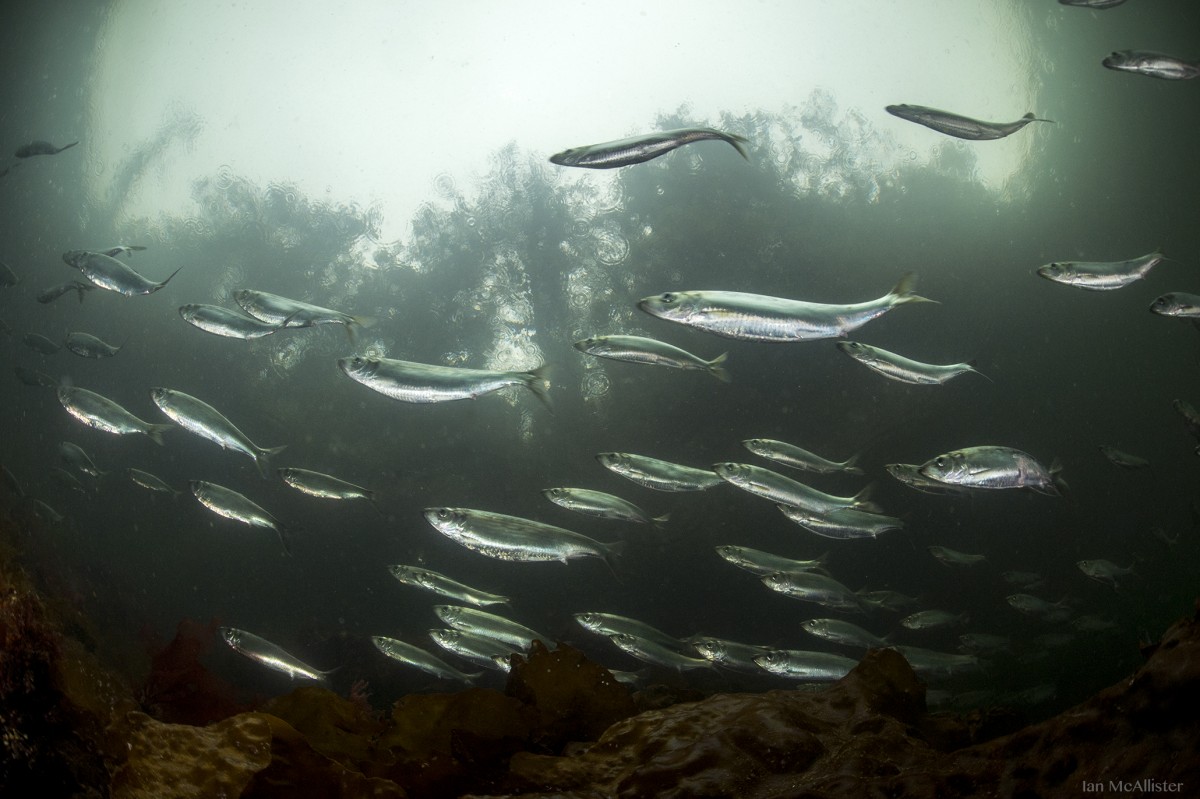Ocean Tipping Points collaborators have discovered that experts vary in their perception of the herring food web structure, recovery and management practices as discussed in an article published today in Conservation Letters.
Find the new publication here: http://onlinelibrary.wiley.com/doi/10.1111/conl.12245/suppinfo
Find a 2-page summary of the article here
Pacific herring are ecologically, culturally and socioeconomically important along the entire west coast of North America, but the nature of herring’s interactions with other species in the food web are not well known. Managers in Haida Gwaii, BC charged with stewarding herring depend on experts to aid them in making well-informed management decisions. However, Ocean Tipping Points researchers identified two distinct groups of experts with dramatically different perceptions of the herring food web. Furthermore, the background or affiliation of the expert could not predict which group an expert would belong to.
Twenty-seven experts in Haida Gwaii herring food webs were surveyed for this study from a variety of backgrounds including:
- Academia
- Non-governmental organizations
- Government of Canada
- Council of the Haida Nation
- Local government organizations
Experts were asked about their understanding of the herring food web, in terms of both direction and strength of connection between species. We were surprised to find big differences in how experts perceive the food web, and doubly surprised that those differences did not map to demographic categories or institutional backgrounds of the experts. Who the experts work for or where they live could not predict the way that they understood the herring food web to work.

Linking herring food web perception to management
The differences in how experts perceive herring food web interactions have implications for how they might expect management decisions to play out. When we simulated different scenarios using experts’ food webs, we saw very different outcomes, depending on how the experts thought the food web was structured. There are many sources of conflict around herring management in British Columbia. Differences of opinion about herring’s role in the food web might be another source of potential conflict that makes its way, either explicitly or implicitly, into the management debate.
This study exposed gaps in understanding and highlights the necessity of recognizing a diversity of perspectives in order to build consensus about herring and ecosystem based management.
